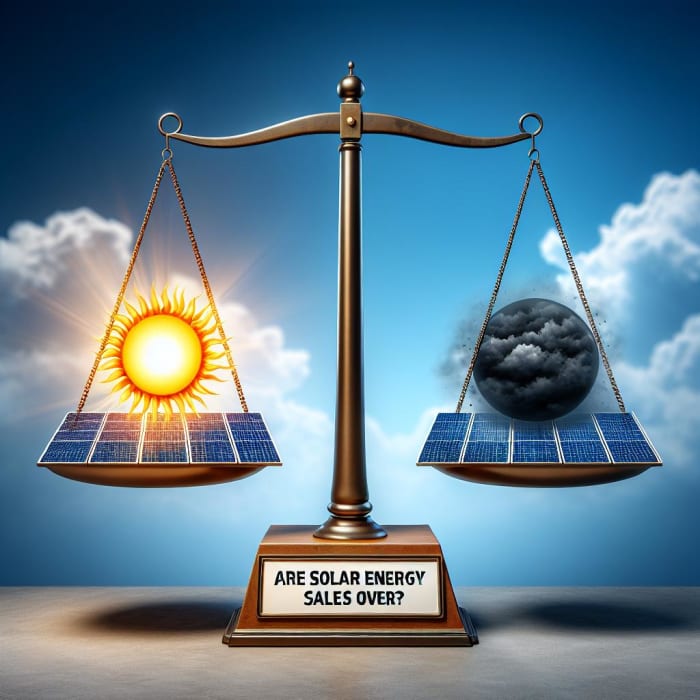
The solar industry has been rapidly growing in recent years as more and more people are turning to clean and renewable energy sources to power their homes and businesses. However, with the recent changes in the political landscape and shifts in government policies, many are questioning the future of solar sales. So, the question arises: is solar sales dead?
Since more and more people are turning to clean and renewable energy sources to power their homes and companies, the solar sector has been expanding quickly in recent years. However, many are doubting the future of solar sales due to recent changes in the political environment and changes in government legislation. Thus, it begs the question: Are solar energy sales over?
Recent changes in government laws, especially in the US, are one reason for the drop in solar sales. Solar installations are now more expensive and less accessible for customers as a result of the Trump administration's decision to apply tariffs on Chinese solar panel imports. As a consequence, the nation's solar sales have slowed significantly.
The decline in government incentives and subsidies for solar energy projects is another aspect that has added to the uncertainty surrounding the future of solar sales. The inability of many state and local governments to maintain or expand their financial incentives for solar installations has increased the cost of solar systems for consumers.
Solar sales have also been impacted by the continuous discussion regarding the efficiency and dependability of solar energy in comparison to more conventional energy sources like coal and natural gas. Some detractors contend that the costs of maintaining solar panels exceed the advantages of solar energy and that it is less dependable than fossil fuels.
In the solar sector, there are still causes for optimism notwithstanding these difficulties. Over time, solar technology has become more and more economical, making solar system investments more accessible to customers. Furthermore, improvements in battery storage and solar panel efficiency, as well as other developments in solar technology, have made solar energy a more attractive alternative for powering homes and businesses.
In addition, customers are becoming more interested in solar energy as a result of their rising knowledge of the negative environmental effects of conventional energy sources. Solar energy is getting more and more popular as people become more aware of their carbon footprint and seek out ways to lessen their environmental impact.
The growing demand from organizations and industries for renewable energy sources is another element propelling the rise of the solar industry. There is a new market for solar sales since many businesses are committing to using solar electricity to satisfy sustainability goals and lower their carbon footprints.
Furthermore, the global movement toward sustainability and the shift to a green economy are opening doors for the solar industry to increase its market share and reach. Globally, nations are establishing aggressive goals to lower their greenhouse gas emissions and utilize more renewable energy sources, which is encouraging for solar sales in the future.
It has also become simpler for customers to switch to solar without having to make significant upfront investments thanks to the emergence of creative financing solutions like power purchase agreements and solar leases. A wider spectrum of customers may now more easily obtain solar energy thanks to these financing options, which have democratized access to it.
In conclusion, there are many reasons to be hopeful about the future of solar sales, even though the solar sector faces problems like shifting government policy and uncertainty about the dependability of solar energy. The solar industry is continuing to grow as a result of declining solar technology costs, technological advancements, rising interest in renewable energy, and creative financing solutions. Solar sales are therefore far from dead and have a bright future ahead of them, despite the lingering questions and concerns.
Comments
Post a Comment